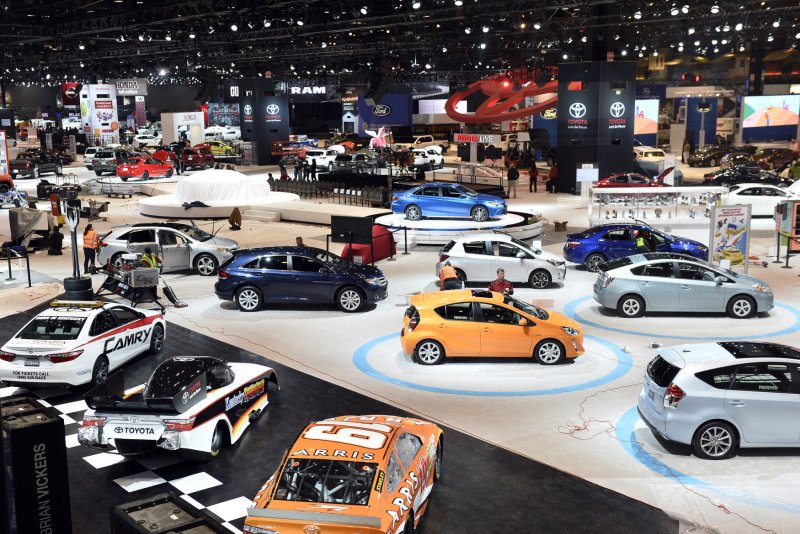The proposed tariff would increase the price of an imported car by about $6,000, and a U.S.-made car by about $2,000, said Jennifer Thomas of the Alliance of Automobile Manufacturers. File Photo by Brian Kersey/UPI |
License Photo
WASHINGTON, July 20 (UPI) -- Industry leaders, labor union officials and foreign diplomats had a unified message at a Commerce Department hearing on President Donald Trump's proposed 25 percent tariffs on auto imports: Don't do it.
Of 44 officials who testified at Thursday's hearing, only one favored imposing the tariffs. Most officials said the proposed 25 percent tariff would make vehicles significantly more expensive and hurt auto companies' efforts to support jobs and innovation.
Foreign officials also warned of possible counter tariffs.
Trump proposed the tariffs under Section 232, which invoked national security as the reason for taxes on imports. But the current investigation is based only on an economic concern, said Brian Garst, vice president of the Center for Freedom and Prosperity, which advocates for market liberalization.
"This is not merely a weak basis on which to conduct a Section 232 investigation, but one that is profoundly and dangerously wrong," he said.
In response to the Department of Commerce's call for public comments on the tariff proposal, only three of more than 2,300 statements supported the tariff, said John Bozzella, president of the Association of Global Automakers. No automaker or auto parts supplier has requested protection under current trade laws, and auto sales, production and exports are at near all-time highs, he said.
The proposed tariff would increase the price of an imported car by about $6,000, and a U.S.-made car by about $2,000, said Jennifer Thomas of the Alliance of Automobile Manufacturers. The growing cost of production would also have a chilling effect on companies investing in research and development, she said.
"When vehicle prices rise, demand drops. Lower demand means less production. And when production declines, job losses follow," Thomas said.
John Hall, a maintenance team member from a Hyundai manufacturing facility in Alabama, said the proposed tariff would "threaten the livelihood" of industry workers like himself.
If the import tariffs are imposed, Canada, Mexico, the European Union, Japan and South Korea would be among the most affected, even though they are America's closest allies, said David O'Sullivan, the EU's ambassador to the United States.
"Frankly, the notion that imports of auto and auto parts from your closest allies could threaten U.S. national security is, bluntly speaking, absurd," he said.
O'Sullivan and David MacNaughton, Canada's ambassador to the United States, warned the panel that should the auto tariff be imposed, other countries could respond with counter tariffs.















